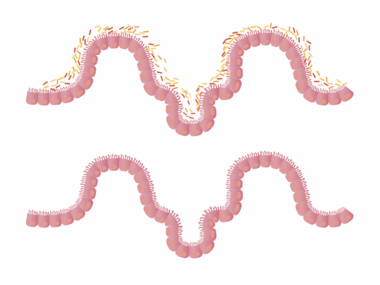Exercise, Immunity, and Stress Hormones: A Comprehensive Review
In recent years, the relationship between exercise, immunity, and stress hormones has garnered significant attention. The effects of physical activity on immune response are complex and multifaceted. Regular exercise is known to enhance the body’s overall immune function, promoting anti-inflammatory processes and improving the efficiency of immune cells. It facilitates the circulation of immune cells, helping them to respond more swiftly to pathogens. However, the type, intensity, and duration of exercise can influence these outcomes. Moderate exercise is generally beneficial for immune health, while prolonged periods of intense exertion can temporarily suppress immune function. Understanding these nuances is crucial for athletes and those involved in fitness. Furthermore, hormonal responses during exercise, such as the release of cortisol and adrenaline, also play a pivotal role in modulating immune responses. Cortisol, often referred to as the stress hormone, can have both positive and negative effects on immunity. Therefore, while exercise promotes health, it may also lead to temporary fluctuations in immune competence. This review aims to explore these interactions in depth, providing a comprehensive overview of current research.
The Role of Exercise in Immune Function
Exercise is known to stimulate various components of the immune system, influencing both innate and adaptive immunity. Engaging in physical activity increases the circulation of immune cells throughout the body. These include lymphocytes, macrophages, and neutrophils, all of which play vital roles in identifying and eliminating pathogens. Consistent exercise has been shown to improve the overall functionality of these immune cells, enhancing their responsiveness to infections. Interestingly, moderate exercise can lead to a boost in the production of antibodies and other immune proteins. This enhancement not only helps in fighting off pathogens but also reduces the risks of chronic diseases. However, vigorous exercise, particularly when sustained over long periods, can lead to immune suppression, making one more susceptible to illness. Identifying the balance between beneficial and detrimental exercise is crucial. For instance, regular moderate exercise has been linked to a lower incidence of upper respiratory tract infections. Additionally, the timing of exercise in relation to stressors can influence immune health, emphasizing the importance of understanding individual responses to physical activity.
The connection between stress hormones and immune response during exercise is a significant aspect of exercise immunology. When exercising, the body releases stress hormones like cortisol and epinephrine, which are crucial in managing physical stress. Cortisol, in particular, regulates various immune processes. At moderate levels, it can help to modulate inflammation and immune responses effectively. However, excessive cortisol due to high stress or prolonged intense exercise can lead to negative effects such as immune dysregulation. Increased cortisol levels can inhibit the proliferation of lymphocytes and the maturation of immune cells, leading to diminished immune surveillance. This is concerning for athletes who may push their bodies to the limit, risking their immune health. To mitigate these negative effects, incorporating strategies such as periodization in training, proper nutrition, and adequate rest is vital. By understanding the balance of stress hormones activated during exercise, athletes can tailor their training regimens to maximize performance while safeguarding their immune function, creating a win-win situation for both health and fitness.
Impacts of Different Exercise Intensities
The impact of exercise on immunity varies significantly based on intensity. Low- to moderate-intensity exercise enhances immune surveillance, while high-intensity training may have a dual effect. At moderate levels, exercise bolsters antibody production and enhances the circulation of immune cells, promoting better health outcomes. Examples of moderate exercise could include brisk walking, cycling, or light jogging, which provide physiological benefits without excessive strain. In contrast, high-intensity training or endurance events can temporarily suppress immune function, primarily due to heightened cortisol levels and physical stress. Research indicates that individuals who engage in excessive training without adequate recovery are at risk for increased respiratory infections. This phenomenon is often referred to as the ‘open window’ theory, where immune function temporarily drops after intense physical exertion. Therefore, coaches and athletes need to prioritize recovery sessions, including active rest, nutrition, and hydration, to maintain immune health. Incorporating these practices ensures athletes can continue to perform optimally while minimizing their susceptibility to illness as a result of intense training.
Nutrition plays a crucial role in supporting exercise-induced adaptations in immunity. Individuals engaging in regular physical activity should focus on a balanced diet rich in vitamins, minerals, and antioxidants to maintain immune health. Nutrients such as vitamin C, vitamin D, and zinc are particularly important for immune function and are essential for the body’s ability to respond appropriately to stressors. Consuming sufficient protein also supports immune cell production and utilization. Moreover, hydration is vital for maintaining optimal physiological functions, including immune responses. Post-exercise nutrition is equally significant as it aids recovery. Consuming a mix of carbohydrates and proteins shortly after exercise can help restore glycogen levels and promote muscle healing while alleviating stress hormones. Research indicates that meals rich in antioxidants, like fruits and vegetables, can further mitigate exercise-induced oxidative stress. Therefore, athletes and fitness enthusiasts should prioritize whole food options in their diets. By focusing on nutrition before, during, and after exercise, individuals can enhance their immune resilience and overall performance, emphasizing the integrative approach to training and health.
Psychological Stress and Immune Response
The psychological aspects of stress also have considerable effects on immune function, especially during periods of intense training or competition. Mental stress can trigger the release of cortisol and other hormones, which may negatively impact immune systems. This link highlights the importance of mental health in sports and exercise contexts. Research suggests that individuals experiencing high levels of psychological stress may have compromised immune functions, increasing the susceptibility to illness. Techniques focused on stress reduction, like mindfulness, meditation, and proper breathing techniques, can help regulate these stress hormones and improve overall immune health. Maintaining a positive mental state can provide protective benefits against immune suppression. Furthermore, building resilience through psychological training not only prepares athletes for competition but also bolsters their immunological responses to potential stressors. Engaging in regular, mindful practices can therefore be a powerful adjunct to physical training regimens. Coaches and athletes should consider integrating these practices into their routines, fostering an environment where mental well-being is valued as much as physical training in promoting enhanced performance and overall health.
To summarize, the intricate relationship between exercise, immunity, and stress hormones is crucial for understanding how physical activity impacts health. Engaging in regular moderate exercise promotes overall immune function while managing stress responses effectively. It is vital to find a balance, as both excessive exercise and psychological stress can lead to immune suppression. Strategies such as varying exercise intensity, focusing on nutrition, ensuring adequate recovery, and integrating mental health practices can help maintain this balance. Further research into how these elements interact will provide insights that can enhance performance for athletes and overall health for individuals. As knowledge in exercise immunology grows, proactive approaches can be developed to mitigate potential health risks associated with intense training. Therefore, fostering an awareness of the role of stress hormones in exercise and immune health is imperative. By optimizing training regimens through informed practices, individuals can not only achieve their fitness goals but also support long-term health, highlighting the multifaceted benefits of maintaining a well-rounded approach to exercise.





